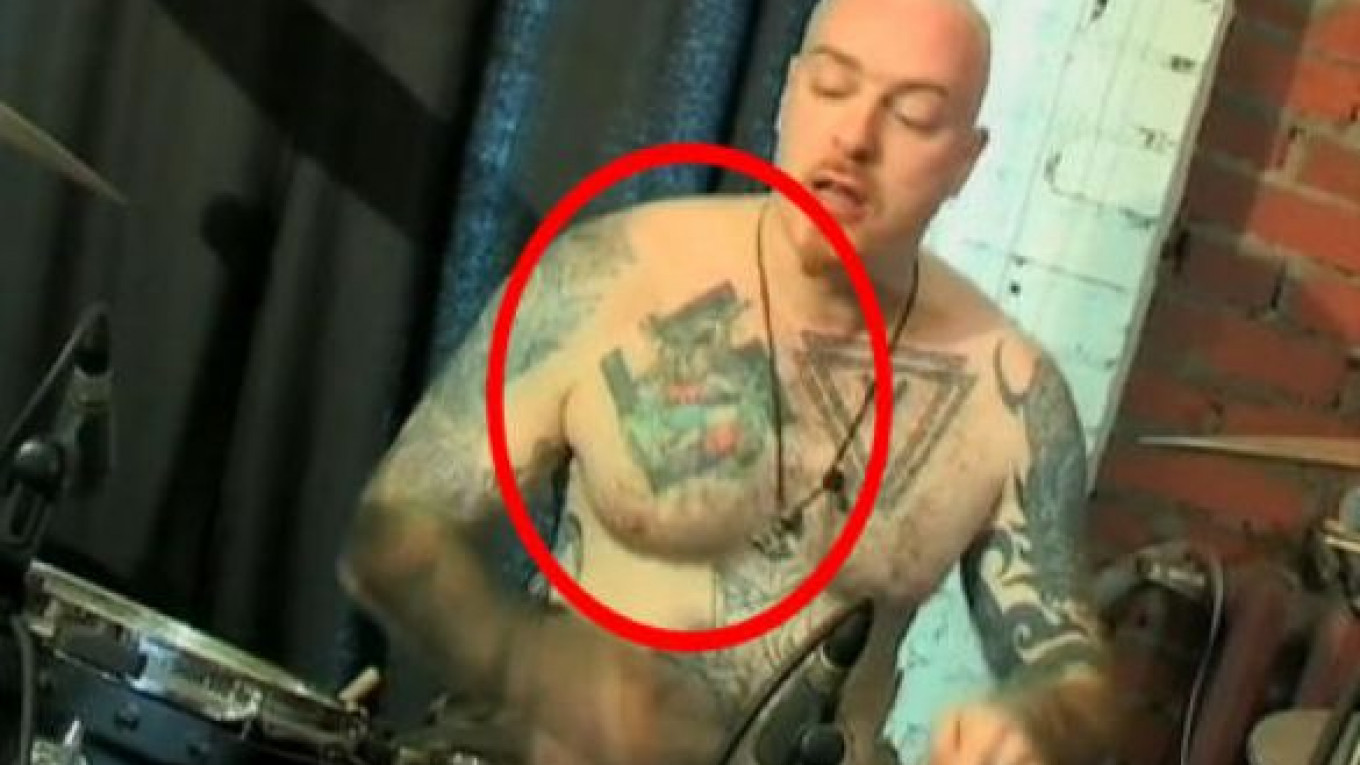NEW YORK — After withdrawing from the Bayreuth Wagner Festival last month following the appearance of a tattoo during a program broadcast on German television, Russian bass-baritone Yevgeny Nikitin now says the image was not a swastika.
The 38-year-old dropped out in July from a new production of Wagner's "The Flying Dutchman" after the image was televised.
It appeared to be a swastika partly covered by another symbol, and the singer said at the time that getting the tattoos years ago was a serious mistake and that he was "not aware of the extent of the confusion and hurt that these symbols would cause."
But in a statement released Wednesday through New York's Metropolitan Opera, Nikitin said, "While it is true that I have had a varied artistic life, including an interest in heavy metal music and Scandinavian mythology, which was the inspiration behind the tattoos I have on my body, it is inaccurate to state that I ever had a swastika tattoo. In fact, the tattoo that has been called into question and that was photographed in 2008 was still in progress at the time."
Nikitin remains scheduled to sing Klingsor in a new production of Wagner's "Parsifal" that opens at the Met on Feb. 15 next year.
Nikitin called the withdrawal from Bayreuth "the most disturbing event of [his] artistic career." He had the Met release both a sketch of the tattoo and what he said was a current photo of it, which depicts a star with eight points with a shield over it along with a sword and an ax.
"I have absolutely no affinity for or connection to any neo-Nazi or fascist movement, nor have I ever in the past," he said. "Nazism in particular has been the source of great personal grief and loss. My two grandfathers were both killed by Nazi forces during World War II.
"My main interest and purpose in life is my art as an opera singer, and it is very distressing that a mistaken interpretation of a tattoo has caused the recent cancellations in Bayreuth and raised questions about my integrity as a performing artist," he said.
Wagner, who died in 1883, wrote anti-Semitic essays and was the favorite composer of many Nazi leaders.
The Bayreuth Festival, which he established, is run by great granddaughters Katharina Wagner and Eva Wagner-Pasquier.
A Message from The Moscow Times:
Dear readers,
We are facing unprecedented challenges. Russia's Prosecutor General's Office has designated The Moscow Times as an "undesirable" organization, criminalizing our work and putting our staff at risk of prosecution. This follows our earlier unjust labeling as a "foreign agent."
These actions are direct attempts to silence independent journalism in Russia. The authorities claim our work "discredits the decisions of the Russian leadership." We see things differently: we strive to provide accurate, unbiased reporting on Russia.
We, the journalists of The Moscow Times, refuse to be silenced. But to continue our work, we need your help.
Your support, no matter how small, makes a world of difference. If you can, please support us monthly starting from just $2. It's quick to set up, and every contribution makes a significant impact.
By supporting The Moscow Times, you're defending open, independent journalism in the face of repression. Thank you for standing with us.
Remind me later.






